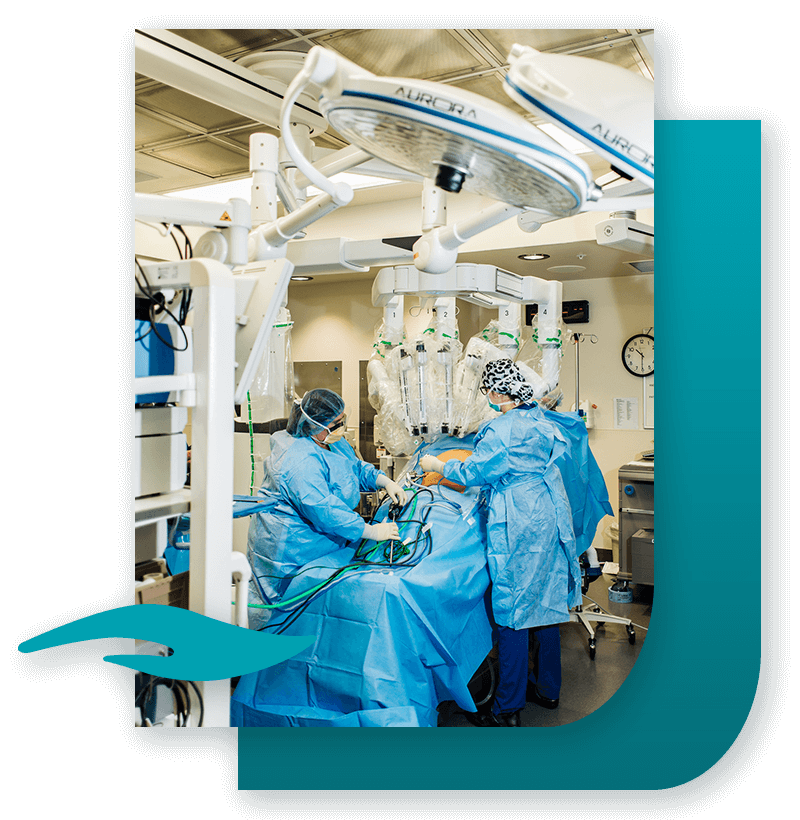When it comes to surgery,
You deserve the best
Surgical team.
Award-Winning Surgical Care to
Fit Your Needs
At Grand Lake Health System, we strive to deliver the highest quality care to patients through top-rated surgical leaders and innovative treatment options.
Surgical Procedures Available at Grand Lake Health System
REDESIGNING THE PATIENT EXPERIENCE
WITH ROBOTIC-ASSISTED SURGERY
Surgery is an area of medicine which has seen tremendous changes throughout the years, including advanced robotic techniques. This has enabled our team to serve our patients and community in bigger and better ways.
General
- Robotic cholecystectomy (gallbladder)
- Robotic hiatal hernia repair
- Robotic toupet fundoplication with hernia repair
- Robotic inguinal hernia repair
- Robotic umbilical hernia repair
- Robotic colectomy (colon resection)
Gynecology
- Robotic assisted ovarian cystectomy
- Robotic assisted salpingo-oopherectomy
- Robotic diagnostic laparoscopy
- Robotic total laparoscopic hysterectomy
Gynecology
· Robotic assisted ovarian cystectomy
· Robotic assisted salpingo-oopherectomy
· Robotic diagnostic laparoscopy
· Robotic total laparoscopic hysterectomy

Common Procedure FAQs
COLONOSCOPY
How do I make an appointment?
You can start with your primary care provider, or you can reach out to one of our general surgery offices.
What is the preparation like for a Colonoscopy?
Many patients are afraid about preparing for a colonoscopy. We want to alleviate that fear by preparing you the best we can. Typically, you drink clear liquids for one day. It is accompanied by another fluid to thoroughly clean out your colon.
Will I be embarrassed or uncomfortable during my colonoscopy? How long will it take for me to recover?
You will be made comfortable during your procedure. The team will treat you with the utmost respect. Within a few hours you can leave with a driver. You can carry on normal activities the next day.
KIDNEY STONE MANAGEMENT
What is a kidney stone?
- Kidney stones are hard deposits made of minerals and salts that form inside your kidneys.
- Kidney stones can affect any part of your urinary tract — from your kidneys to your bladder. Often, stones form when the urine becomes concentrated, allowing minerals to crystallize and stick together.
- If stones become lodged in the urinary tract, are associated with a urinary infection or cause complications — surgery may be needed.
What are the treatment options for kidney stone?
- There are several types of procedures to treat kidney stones:
Shockwave Lithotripsy: provider uses shockwaves to break apart the stones from the outside of your body.
Ureteroscopy: provider inserts a scope through your urethra and bladder and inter your ureter. Instruments the provider passes through the scope can break up and remove the stone.
Will I need a stent?
The physician may place a small stent in the ureter during the procedure. This will help the stone fragment pass through the bladder. Stents can be removed in the office or by the patient as per surgeon instructions.
If you have additional questions about our surgical services department, contact us at 419-394-9511.